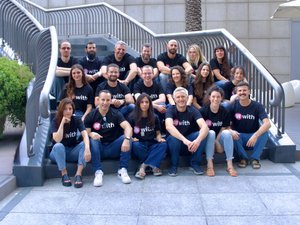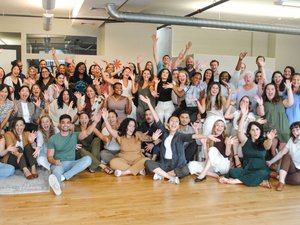
Potentially millions of students, from kindergarteners to college seniors, have transitioned entirely to online learning within the last two weeks.
In Massachusetts alone, more than 20 higher ed institutions have decided to send their students home and finish the semester through online classes to help mitigate the spread of COVID-19, the respiratory illness caused by the novel coronavirus. Gov. Charlie Baker yesterday ordered K-12 schools to remain closed until May 4 at the earliest, nearly a month later than when they were originally slated to reopen.
Parents, students and teachers are navigating a new landscape: one where kindergarteners get storytime over Zoom calls, assignments are completed through online modules and a solid internet connection is required just to finish out the school year.
Edtech startups in Greater Boston have, consequently, seen a huge increase in demand, both for services they offer and for more support from the companies themselves.
"Maybe a few universities had some plans, but if we’re talking about K-12 schools and school districts, they didn’t have a plan," Jean Hammond, co-founder of edtech-focused nonprofit LearnLaunch, told BostInno. "They didn't see something like this coming. Maybe they started to, a few weeks or a month ago, but really, they just didn’t have a plan."
Fourteen startups in LearnLaunch's accelerator program, of which Hammond is co-founder and general partner, have launched new initiatives designed to provide some relief for educators, both in K-12 and higher education, whose systems have been disrupted by COVID-19.
Most of those are providing resources for free for a limited time, including online curriculum development tools, certification sessions and distance learning plans for students with special needs.
Outside of LearnLaunch, other edtech startups are scrambling to meet the needs of newly online educators. Unruly Studios, a learn-to-code edtech platform that teaches kids to code through physical activity using its hardware "Unruly Splats," is offering resources for virtual learning. Whether or not users have the Unruly Splats at home, they can use the company's app, which features coding exercises teaching students about things like MIDI and Morse code—"and we're still lacing in physical activity, as we always do," said founder and CEO Bryanne Leeming.
Unruly Studios has also launched a program, the "Unruly COVID-19 Grant," for which educators can apply to receive two free Unruly Splats and lesson plans for coding and playing at home.
"For schools, it feels like right now is phase one," Leeming said. "Everyone’s figuring out their strategy. In the next couple of weeks, we’ll see that transition into a new phase."
For some companies, though, distance learning is nothing new. In fact, it's the foundation on which several startups are built, including edX, Examity and Arist.
Anant Agarwal is the CEO and founder of edX, the online course provider launched out of MIT and Harvard in 2012. He has been touting the benefits of online education for the last decade.
"Our partners believe the future of education is omnichannel, a combination of online and in-person," Agarwal said. "Coronavirus is just another factor."
edX has seen a "significant uptick" in traffic over the last several weeks, Agarwal said. The company has also received an influx of new inquiries from universities, high schools and corporations looking to partner with edX. And in a somewhat meta move, edX is also actively publishing content for educators on how to best transition to online learning.
The same holds true for Newton-based Examity, which provides an online proctoring platform. There has been a "dramatic increase in demand" recently, said Kathy Glebus, Examity's vice president of human resources.
The new demand means that Examity is also hiring—good news, given that new unemployment claims in the U.S. have reached an astounding record high of 3 million as the nation teeters into recession. Glebus said the company has hired about 100 new proctors and about 50 new auditors, most of whom had recently lost other jobs.
Arist, a startup out of Babson College that develops text-message-based courses, has also seen a spike in usage, according to Ryan Laverty, the company's co-founder and chief operations and content officer.
"We’ve been trying to communicate with educators and departments, 'Here’s what education can learn about this period of time and being adaptable," Laverty said. "A lot of pillars of education are not prepared for mass disruption… A lot of educators woke up one morning and felt like they didn’t have the right tools at their disposal."
Because it is based on text messages, which require no internet connection, Laverty thinks Arist has another important potential application: reaching newly remote students who can't get online. Nearly 3 million students in the U.S., about 17 percent of all students, do not have internet access at home.
To deploy its technology on a wider basis, Arist has also begun offering free access to schools affected by COVID-19. It has also published a course on coronavirus. (Laverty and his team have themselves been affected by disruption to the education system: Babson sent most students off campus, so they are now scattered across New England, plus one team member in Florida.)
Edtech startups are likely about to come face to face with another issue: funding. Because schools' budget years run from July 1 to June 30, springtime usually means a "cash flow crunch" anyway, said Hammond of LearnLaunch. To close that gap, many startups would normally look to close small funding rounds over the next two months. Now, that may not be possible.
But for the companies that do weather this storm, better deals and stronger partnerships may be waiting on the other side.
"If they’re a great partner to the schools across this period, they’re upping their probability for more contracts in the future," Hammond said.








